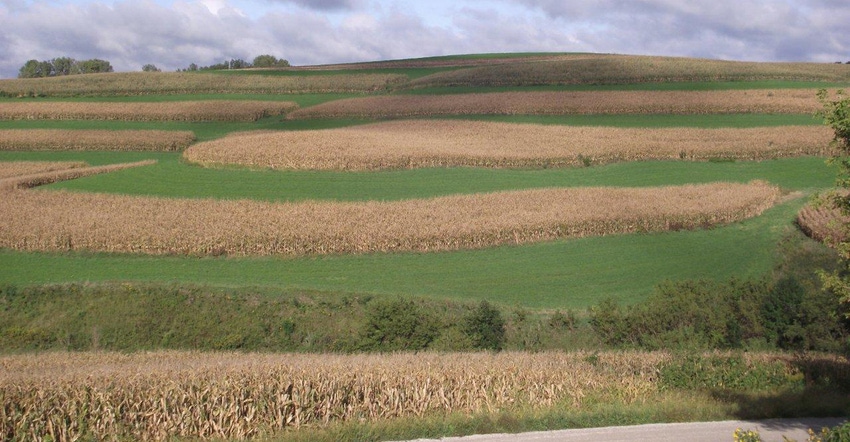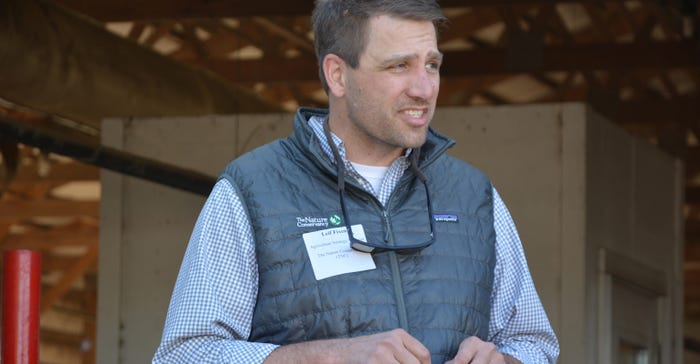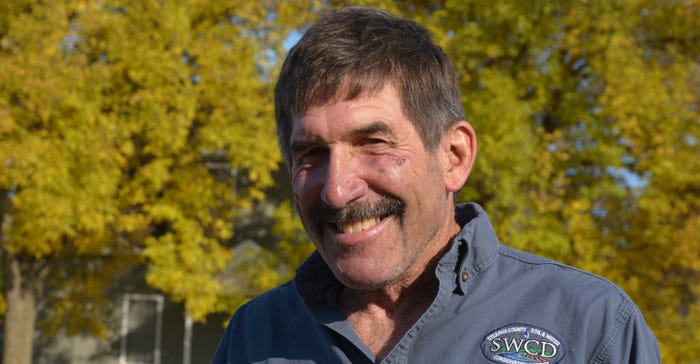
The first-ever pilot in Minnesota to define and provide financial incentives for soil health practices, storing carbon in soils and reducing field nutrient run-off was kicked off Oct. 8 in Stearns County at Mill Creek Dairy near Kimball.
Representatives from the Ecosystem Services Market Consortium, The Nature Conservancy and Stearns County Soil and Water Conservation District explained the project which would encourage more farmers to implement specific conservation practices that would test and streamline the creation and sale of environmental credits from farmland.
The goal is to sign up 50,000 acres by December 2021 consisting of dairy and livestock farm in the county that also grow corn and soybeans. Project partners will work with farmers at no cost to quantify, verify and certify the ecosystem service benefits of improved nutrient management, soil health and edge-of-field best management practices. The pilot program will pay farmers over five years based on the value of enhanced conservation practices.
Baseline field and soil testing will begin this fall in the project area which encompasses land draining into the Sauk River, a tributary of the Mississippi River. Both field and soil improvements will be tracked and quantified by ESMC.
“ESMC has the only platform that offers multiple credits — for carbon, water quality and quantity,” says Leif Fixen, agriculture strategy manager for The Nature Conservancy. Depending on the credit, farmers could eventually earn $5 to $20 per acre. Additional credits could be stacked, resulting in more income.
 CLEAN WATER: Conservation in central Minnesota will help keep the Mississippi river headwaters clean, says Leif Fixen, agriculture strategy manager with The Nature Conservancy.
CLEAN WATER: Conservation in central Minnesota will help keep the Mississippi river headwaters clean, says Leif Fixen, agriculture strategy manager with The Nature Conservancy.

Fixen hopes to see five to 10 farmers enroll yet this fall.
“This program offers farmers one more way to think about the markets,” he says. “They could think about going with longer day corn [to ensure higher yields] or they could be willing to take a 5-bushel hit to make sure a cover crop is growing and get more money for a carbon credit.”
The site of the pilot program announcement, Mill Creek Dairy, has implemented numerous conservation practices over the years that would aid in earning credits. Farm owner Tom Gregory, also a Stearns SWCD supervisor, and his family have installed feedlot upgrades, irrigation water management, cover crops, contour strips, terraces, windbreaks and grassed waterways. The farm is enrolled in the Conservation Reserve Program and manages a pollinator habitat that was planted in partnership with General Mills.
 FARMER INTEREST: Dairy farmer Tom Gregory, Kimball, says he is interested in learning about how conservation practices will be valued and credited under the new pilot program. His farm served as the pilot’s launch Oct. 8.
FARMER INTEREST: Dairy farmer Tom Gregory, Kimball, says he is interested in learning about how conservation practices will be valued and credited under the new pilot program. His farm served as the pilot’s launch Oct. 8.

The farm was also certified in 2015 through the Minnesota Agricultural Water Quality Certification Program.
In addition to the three partners already mentioned, the collaborative pilot project involves expertise and participation from the Natural Resources Conservation Service, the MAWQC program, AgCentric, Agricultural Utilization Research Institute, Centra Sota Cooperative, Environmental Initiative, Field to Market, Headwaters Agriculture Sustainability Partnership, Houston Engineering, Land O’Lakes Truterra, MBOLD, Midwest Dairy, Minnesota Milk Producers Association, Minnesota Board of Water & Soil Resources, Minnesota Pollution Control Agency, Syngenta and the University of Minnesota Forever Green Initiative.
To learn more about ESMC and the project, visit ecosystemservicesmarket.org.
About the Author(s)
You May Also Like






